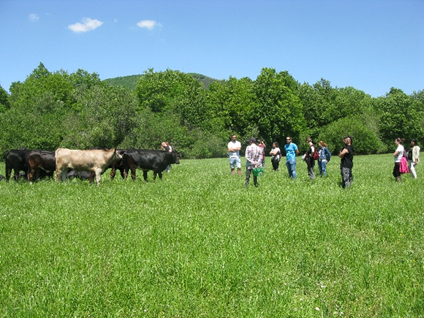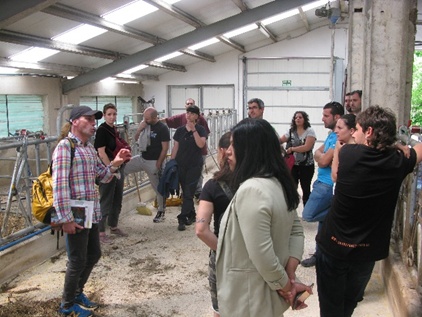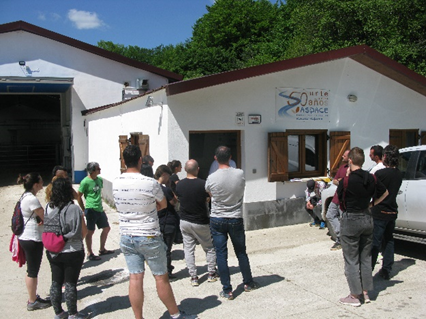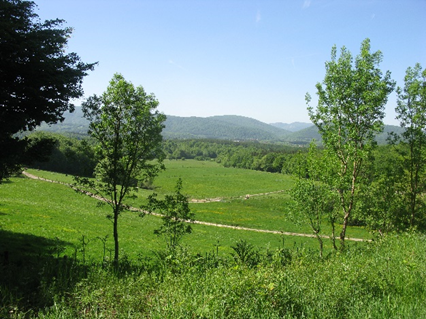
The demonstration was carried out on INTIA’s demonstration farm in Roncesvalles (Navarra). The 17th of May 2022, students of the course ‘The incorporation to livestock production’ visited the farm. Technicians from INTIA explained to them holistic farm management including among others: rotational grazing to fix carbon in the soil, how to minimize the carbon footprint in livestock productions, the efficiency and simplification of the use of labor, the differentiated valorization of the products (milk and meat), and improving the quality farmer life. Young farmers also visited the Roncesvalles cheese factory managed by Aspace Navarra, to offer an employment alternative for people with disabilities, through the artisan production of organic dairy products with cow's milk.



Holistic grazing planning aims to improve farm profitability, pasture quality and quantity, organic and inorganic soil improvement and water availability, resulting in higher production, higher quality and lower inputs. It improves C sequestration and decreases animal feed inputs. At the same time, this leads to an improvement in biodiversity and the ecosystem in general.
Holistic management implies the elaboration of prior planning, adapted to the reality of the territory and the farm. Farmers need to be adequately trained in this type of management. It is important a good understanding of how a farm ecosystem works, and the impacts that farmers decisions and management have on it. Therefore, the main obstacles to implement would be to find qualified advice, technical support, and accompanying in this process. Precisely, INTIA’s farm in Roncesvalles aims to be a reference for holistic management of small-scale cattle farms in the wetlands of Navarre.
Costs: The cost of planning and finding qualified advice. Other additional costs related to fencing, troughs, etc. should also be considered. Results are not immediately, first results are usually visible by the third year, although changes are usually seen in less than two years.
Savings: Decreases in animal feed inputs and fertilizers costs. It generates higher production and quality. Improved pasture means an overall revaluation of the farm.

We recommend this innovation although challenging, holistic management is an integrated decision-making that contributes to the economic, social, and environmental sustainability of agro-livestock farms. The aim of INTIA’s experimental farm in Roncesvalles is to create and demonstrate an attractive management option for small-scale cattle farms, existing or new, in the wetlands of Navarre, associated with higher product valorisation.